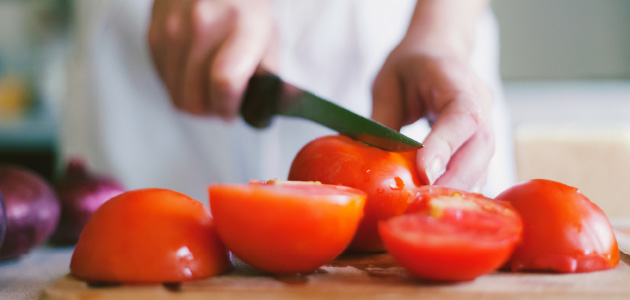What we eat has a profound impact on our overall health. We know that vitamins, minerals, protein and fibre provide our bodies with the things they need to function properly – but can foods also help mitigate the impact of inflammation?
What is inflammation?
According to the National Centre for Biotechnology Information, inflammation is the immune system’s response to an irritant, which could be a germ (like bacteria, viruses or fungi) or a foreign object, such as a thorn in your finger.1
In reaction to the invader, your body releases various substances designed to allow more blood and immune system cells to reach the injured tissue, and that’s why the area becomes inflamed and may feel red and hot. 2
While inflammation is a healing response, it can sometimes cause chronic diseases too. This occurs when the immune system mistakenly attacks the body’s own cells. Rheumatoid arthritis, psoriasis and inflammatory bowel disease are all examples of inflammatory diseases that can sometimes last for a lifetime. Inflammation also may have links to diabetes3, cancer and even asthma.4
If you suspect that you may have an inflammatory disease, talk to your doctor to get an accurate diagnosis and treatment or pain relief, if either is applicable to your situation.
Foods that fight inflammation
It’s important to speak with your health care provider before making any dietary changes, particularly if you have underlying health conditions or are taking any prescription medication. Your GP will know your medical history and can provide guidance about foods and other supplements that are right for you.
If you’re cleared to adjust your diet, the following foods5 may help to manage inflammation in your body:
- Olive oil
- High fibre foods
- Tomatoes
- Nuts
- Leafy greens, including spinach and kale
- Fatty fish, such as salmon and mackerel
- Fruit, including blueberries and oranges
- Dark chocolate (at least 70% cocoa – a higher percentage is even better)6
Studies have shown that the following herbs and spices7may also help fight inflammation:
- Ginger
- Garlic
- Turmeric
- Cardamom
- Black pepper
- Ginseng
- Green tea
- Rosemary
- Cinnamon
Foods to avoid
Just as some foods may help inflammation, others may aggravate it. These include:
- Fried foods
- Highly processed foods
- Food and drink with added sugar
- Red meat
- Unhealthy fats, such as saturated and trans fats.
Of course diet alone isn’t going to eliminate inflammation in your body, but making the choice to include more herbs and foods that may help you manage the condition makes good sense. Even if you’re not dealing with inflammation, choosing healthy ingredients like the ones listed above is a great way to help support your overall wellness.
For delicious recipes featuring anti-inflammatory ingredients, visit EatingWell, and Medical News Today.
SOURCES
1,2 https://patient.info/news-and-features/what-is-inflammation-and-how-can-we-prevent-it
3 https://www.medicalnewstoday.com/articles/248423#causes
4 https://www.healthline.com/health/chronic-inflammation
5 https://www.medicalnewstoday.com/articles/248423#diet
6 https://www.healthline.com/nutrition/13-anti-inflammatory-foods
7 https://www.healthline.com/nutrition/anti-inflammatory-herbs




